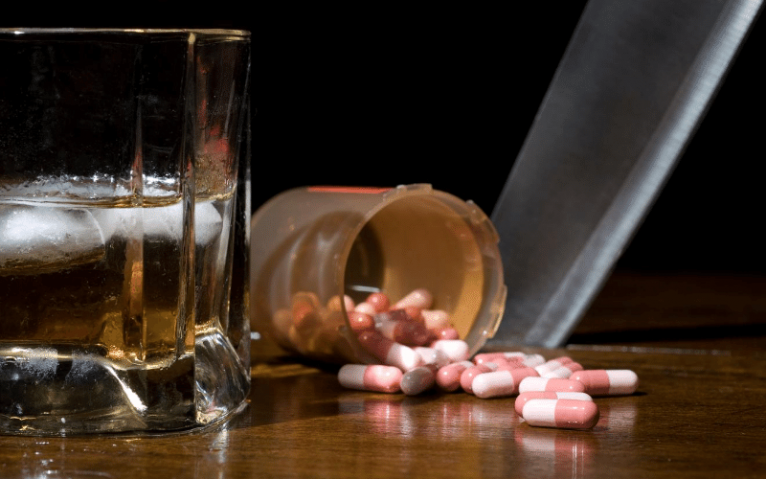When someone struggles with a substance use disorder, they’re bound to start mixing substances at one point or another. One of the most popular combinations among prescription drug addicts is mixing Klonopin and alcohol. However, as with most drug combinations, the dangers of this practice can be life-threatening.
What is Klonopin?
Klonopin (clonazepam) is a prescription medication that falls under the benzodiazepine category, and it’s the name brand for clonazepam. Most people are familiar with the generic version; most doctors treat anxiety, panic disorders, seizures, and other mental health conditions. Klonopin exhibits properties similar to depressants, calming the central nervous system and suppressing nerve activity.
How Dangerous is Mixing Klonopin and Alcohol?
This widespread practice is hazardous. Since both clonazepam and alcohol have depressant effects, the combination of these substances intensifies their effects. In a mixture, Klonopin acts as a central nervous system depressant, while alcohol strengthens this calmness and reduces nerve activity even further. The dangers of mixing alcohol and Klonopin include effects such as:
- Shortness of breath
- Reduced liver function
- Impairment of physical coordination
- Memory loss
- Increased risk of overdose
Klonopin and Alcohol Overdose
Overdoses caused by mixing Klonopin and alcohol are more common than many people realize. This is because both substances are CNS depressants that act on GABA receptors in the brain. They potentiate each other, making the combination more potent than the sum of its parts. Due to their potentiating effects, it takes less to produce an overdose with both drugs than it would if they were taken separately.
Add to this the fact that these drugs also produce something called retrograde amnesia. This is the medical term for experiencing what is better known as a blackout. Often someone will take a Klonopin pill, drink alcohol, forget they took the pill, and take more.
What Would Overdose Look Like?
Well, it’s characterized by dangerously decreased breathing, heart rate, blood pressure, and a loss of consciousness. Other symptoms include blurred and double vision, loss of motor skills, hallucinations, unresponsiveness, vomiting, and disorientation.
Effects of Mixing Klonopin and Alcohol
Withdrawal from both Klonopin and alcohol is potentially fatal. This is due to how both chemicals interact with the brain and the central nervous system. Both have symptoms like vomiting, extreme anxiety and depression, irritability, aggressive behavior, and seizure. Both should only be attempted in a medically supervised environment that employs a taper.
Interestingly enough, Klonopin is often the drug of choice for both benzo and alcohol detoxes. This is due to its long half-life. Klonopin takes longer to reach peak effects and is metabolized by the body slower. This makes it, in theory at least, less abusable and better suited for detox.
Klonopin and Alcohol Addiction Treatment
Anyone mixing Klonopin and alcohol with drug abuse needs to seek treatment at a dual diagnosis recovery center. If someone has a valid prescription for Klonopin, odds are they have an existing condition that requires further treatment. At Lighthouse Recovery Institute, we believe in creating comprehensive addiction treatment options that address every aspect of our patient’s addiction.
Drug and Alcohol Detox
The first step toward recovery is detox. When people start mixing Klonopin and alcohol, attempting to quit independently, they can experience side effects that can be life-threatening. Since alcohol addiction can lead to severe withdrawal symptoms, detox helps control these side effects.
To avoid overdose and fatal withdrawal symptoms like seizures, checking into a detox rehab center is paramount. With supervision from a medical professional, recovering drug addicts can have a better chance of sobriety.
Drug and Alcohol Rehab
After detox, most patients will move to an inpatient treatment program that offers structure and support 24/7. Others, mainly those with less severe addictions, might be able to choose an intensive outpatient program that provides more flexibility so that they can continue daily responsibilities like work, school, and family.
Group Therapy
Part of most drug and alcohol rehab programs incorporate group therapy sessions. The setting encourages a sober-friendly network and offers a safe space to voice struggles, concerns, and hopes. Through group therapies, patients also attend 12-step programs to continue their path to sobriety.
Aftercare Recovery Programs
Unfortunately, addiction is a life-long condition. Aftercare recovery programs offer continuing support once people leave a rehab facility. Here, patients focus on building life development skills that help them integrate back into society. Most people keep working on relapse prevention coping mechanisms that help them sustain long-term sobriety.
Seeking Addiction Help Today
If you or someone you know struggles with drug and alcohol abuse disorders, please contact us today. Whether that involves a complete drug and alcohol detox process, intensive outpatient treatment, or continuous aftercare support, we’ll do everything in our power to help you beat this chronic disease.
Addiction to Klonopin and alcohol can be a death sentence. Reach out to them and see if they’re ready to get help for their addiction. If you need help setting up an intervention, our addiction specialists can offer counsel and guidance.
At Lighthouse Recovery Institute, our addiction specialists can help you find the best treatment center for your unique needs. We don’t believe in cookie-cutter treatment plans, which is why we look at each case on an individual basis and do our absolute best to accommodate your needs to help your recovery journey.





